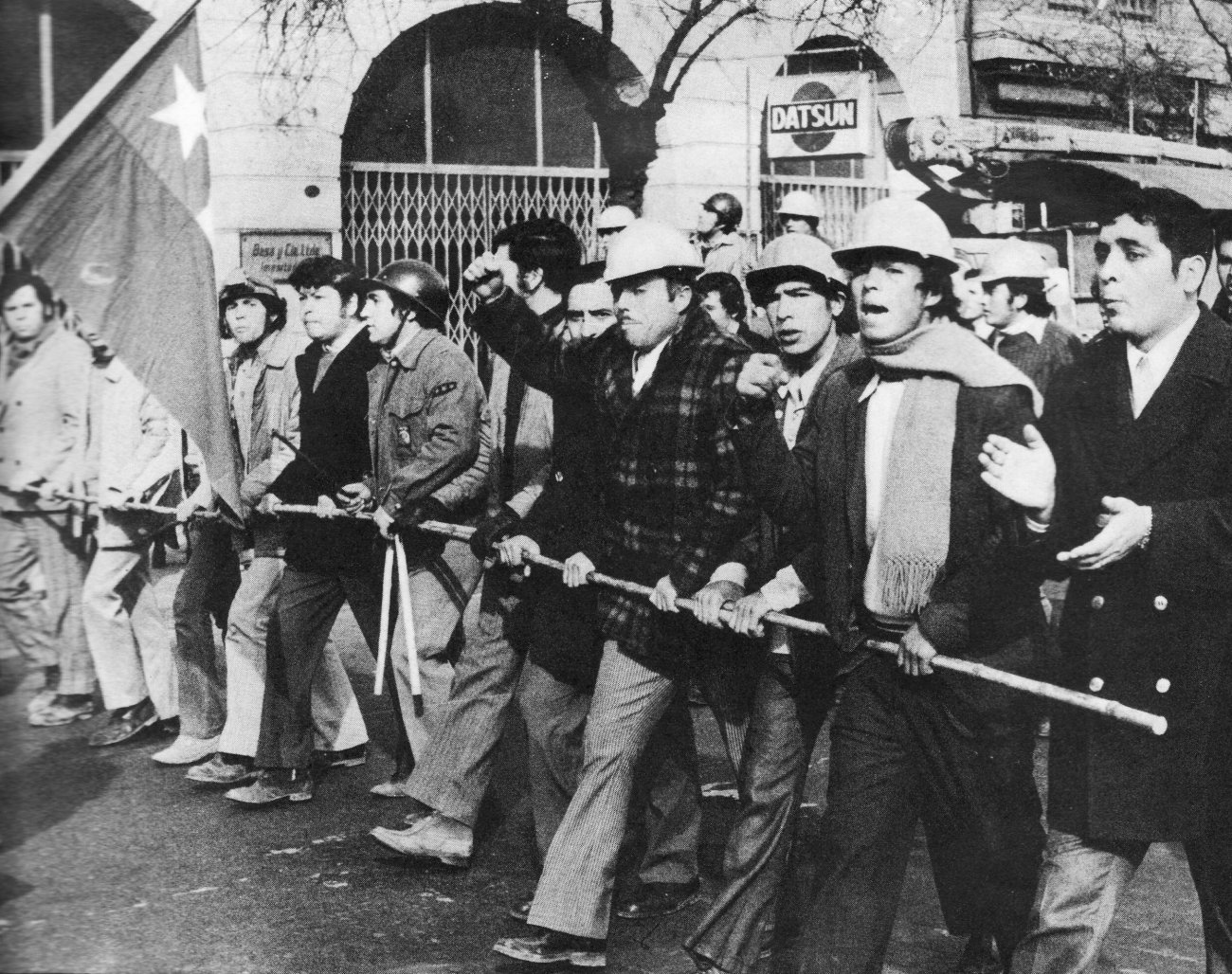More languages
More actions
No edit summary Tag: Visual edit |
(fixed) Tag: Visual edit |
||
| Line 2: | Line 2: | ||
'''Cordón Industrial''' (or in plural '''Cordones industriales'''; English: Industrial Belts) was an organ of popular power or workplace democracy. Cordones were established in [[Republic of Chile|Chile]] by the [[Proletariat|working class]] during the [[Salvador Allende]] Popular Unity government (1970–1973). | '''Cordón Industrial''' (or in plural '''Cordones industriales'''; English: Industrial Belts) was an organ of popular power or workplace democracy. Cordones were established in [[Republic of Chile|Chile]] by the [[Proletariat|working class]] during the [[Salvador Allende]] Popular Unity government (1970–1973). | ||
Cordones were established to pressure the Allende government to socialize companies that refused to acknowldege basic workers' rights. The formation of these cordones accelerated in response to the [[bourgeoisie]]'s attempt to destabilize Allende's democratically-elected government and the implementation of [[socialism]]. Each | Cordones were established to pressure the Allende government to socialize companies that refused to acknowldege basic workers' rights. The formation of these cordones accelerated in response to the [[bourgeoisie]]'s attempt to destabilize Allende's democratically-elected government and the implementation of [[socialism]]. Each cordón was a group of factory workers and workers from other industries; the first one was formed on June 19, 1972. At the time of Allende's government's overthrow, there were 31 cordones nationally, with 8 of them in the Chilean capital of Santiago. | ||
Revision as of 18:53, 4 August 2023

Cordón Industrial (or in plural Cordones industriales; English: Industrial Belts) was an organ of popular power or workplace democracy. Cordones were established in Chile by the working class during the Salvador Allende Popular Unity government (1970–1973).
Cordones were established to pressure the Allende government to socialize companies that refused to acknowldege basic workers' rights. The formation of these cordones accelerated in response to the bourgeoisie's attempt to destabilize Allende's democratically-elected government and the implementation of socialism. Each cordón was a group of factory workers and workers from other industries; the first one was formed on June 19, 1972. At the time of Allende's government's overthrow, there were 31 cordones nationally, with 8 of them in the Chilean capital of Santiago.
